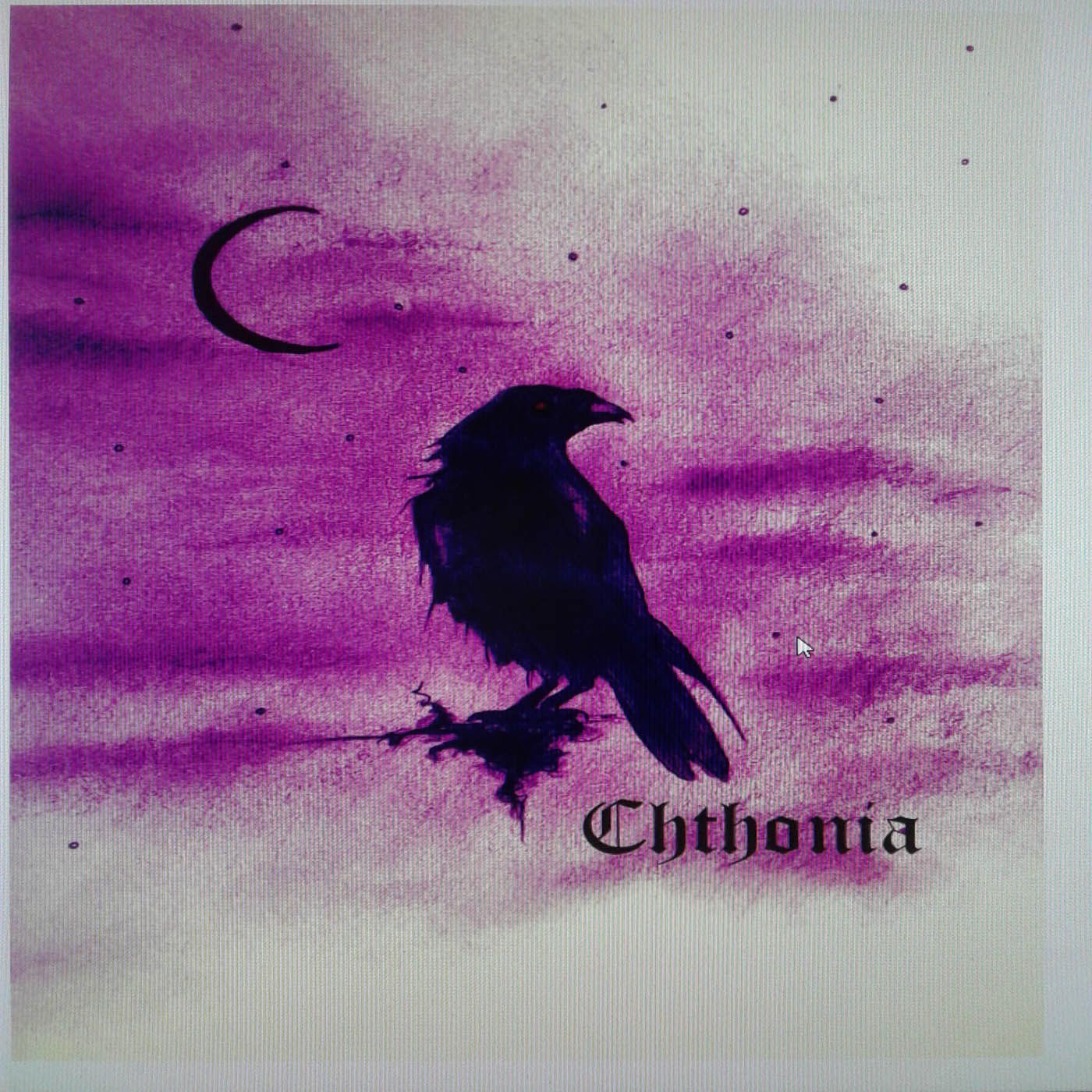

Chthonia
Brigid Burke
Explore the world of the Dark Feminine in myth, religion, folklore, and magic.
Episodes
Mentioned books

Dec 30, 2025 • 49min
Kali (Chthonia Classic Remastered 10)
Remastered Kali episode from 2020. This is the last remaster I will be posting. The original promos still exist at the end of the episode, but are no longer valid.

Dec 22, 2025 • 39min
Zigu: the Purple Maiden
In this final episode of Chthonia, we look at a Chinese toilet goddess called Zigu. Her backstory makes her an abused concubine murdered in the toilet, though toilet gods and goddesses exist throughout China and Japan. She is consulted in divination for the silk harvest, and in later dynasties she was connected to creating works of literature through automatic writing. We look at the attributes of Zigu, including her epithet of "Purple Maiden", and what these might tell us about the paradox of an exalted goddess of royal integrity being associated with the most humble of places, the latrine.

Dec 8, 2025 • 37min
Kalma: Personification of the Grave and the Corpse
In this week's episode we look at Kalma, a Finnish folkloric figure mentioned in the Kalevala associated with corpses and graveyards. She is the daughter of the god and goddess of the underworld, and has a dog called Surma that is a cross between the Greek Kerberos and Medusa. We look at the stories surrounding Kalma, and discuss what the imagery around her tells us about death and time.

Nov 24, 2025 • 48min
Scathach: Teacher of Great Warriors
In this episode we talk about Scathach, the mythical Irish warrior woman who would train men able to reach her island in the art of war. Her most famous pupil was the legendary Cú Chulainn, and much of her story is connected to her encounter with him. She gives Cú Chulainn a weapon that she created herself, the Gáe Bulg, but never teaches him how to use it. We look at Scathach, as well as her daughter and sister, and the drama that unfolds when Cú Chulainn arrives. We also discuss what this might say about the art of war, and the negotiation of the Anima.

Nov 12, 2025 • 47min
La Cigaupa: Dominican Mountain Mermaid
This week's episode looks at La Cigaupa, a beautiful howling woman with backward facing feet who is found in the mountains in Dominican folklore. She is often treated as a dangerous siren figure, but her origin story is surprisingly different. We explore the question--is she a colonizer's myth?

Oct 27, 2025 • 48min
Styx: Hate Goddess as a Source of Strength?
This week we look at the daimonic goddess Styx, who is a personification of the river in Hades, but is also associated with Hatred. Her children are Victory, Force, and Rivalry, and Zeus rewarded her help in the Titanomachy by making the gods swear oaths upon her waters. Why do the qualities of a valiant warrior have their origin in a god of hatred? Is it a statement about war, or something else? The psychological possibilities may surprise you.

Oct 13, 2025 • 44min
Dea Tacita: Double Edged Sword of Silence
This week's episode is about the Roman deity Dea Tacita, celebrated with a ritual at the Feralia to keep gossip and the results of "loose tongues" from the family and the city. However, Dea Tacita's origin story relates to a nymph called Lara (also mother of the Lares or household gods), who has her tongue cut out for warning one of Jupiter's would-be paramours of his possibly unwanted advances. This fact makes the symbolism of Dea Tacita a double edged sword--we see the virtues of silence, but is this silence also a type of oppression?

Sep 29, 2025 • 50min
Cliodhna: the Banshee Queen as Soul Image
This week we look at Cliodhna, an Irish fairy queen who is a patroness of Munster and also called Queen of the Banshees. This beautiful banshee has a habit of stealing mortal men away from her favored families, though her main legend is the opposite--a mortal man who she loved and with whom she ran away. This has led to the legend of the Tonn Cliodhna, a kind of diastrous tidal wave reminiscent of the one sent to either kill her or return her to her home. We look at the stories of Cliodhna, and how one might look at her stories through the lens of depth psychology.

Sep 15, 2025 • 1h 8min
Virgin Mary: the Paradoxical Divine Connection
Dive into the intriguing layers of the Virgin Mary's mythology, exploring her 'dark Feminine' aspects. Discover her connection to the dying and resurrecting vegetation god and parallels with Semele, mother of Dionysus. Unpack the archetype of the divine child and how it challenges male authority. Examine Mary's multifaceted narratives across different traditions. Delve into the symbolism of the Black Madonna and the duality of her representation, reflecting both submission and power.

Sep 1, 2025 • 59min
Mary Magdalene: The Apostles' Apostle
In this episode we look at Mary Magdalene, the favorite female disciple of Jesus. The gospels suggest that Mary became a follower of Jesus after he expelled seven demons from her. Pope Gregory promoted the narrative that she was a "repentent prostitute". The various Gnostic gospels suggest that Mary knew and understood secrets that the other Apostles could not understand, and she was frequently dismissed and challenged by Simon Peter, acknowledged as the first Pope of the church. We look at the stories about Mary Magdalene, both the history and the tradition, and ultimately ask the question--did Mary have the secret to escaping the cycle of time, hinted at by the Gnostic gospels?


